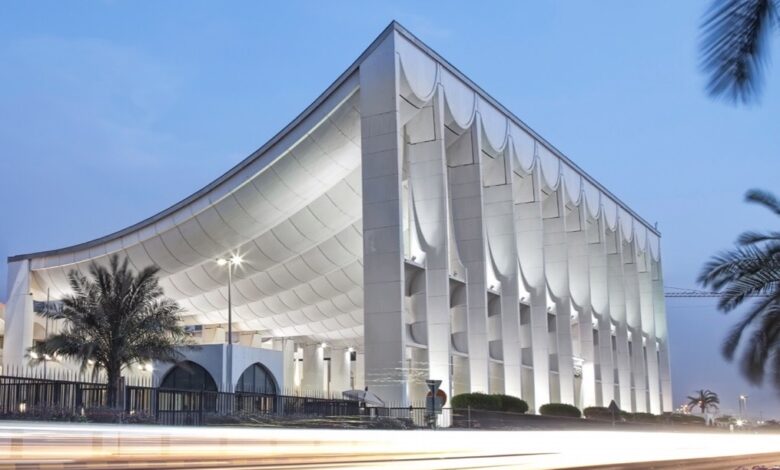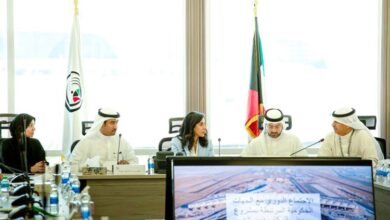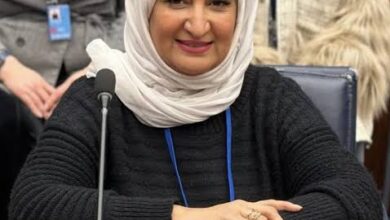New legislative term, an opportunity for a fresh start

In the midst of Ramadan fasting, on 4 April Kuwait once again went to the polls with citizens queuing in front of polling stations to cast votes for the 18th legislative term of the National Assembly. Despite election fatigue setting in among many voters at having to participate in the fourth election in as many years, engagement by citizens in the political process did not appear to have waned.
In his televised address to the nation on the occasion of the last 10 days of Ramadan, on Monday, 1 April, His Highness the Amir Sheikh Mishal Al-Ahmad Al-Jaber Al-Sabah highlighted the importance of the upcoming general elections and noted that participation in it was a constitutional right and a national commitment. He urged voters to vote for candidates who would be their best representatives.
“As we approach the National Assembly elections on 4 April, I ask you to select the best representatives, and not those whose objectives are personal gain or inciting crises, or undermining constitutional principles. Your wise selection is your path for the building of a future for your nation and for the generations to come,” said His Highness the Amir.
Advising voters to reject those inciting division and sedition in society, His Highness the Amir said: “Do not betray your vote; ensure that the candidate you select is one who speaks words that satisfies the Almighty, uses language that avoids harming others, and does not aim to incite sentiments and emotions among voters at the expense of the nation and all its citizens.”
Expressing his hope that every eligible citizen would participate in the election, His Highness the Amir added, “Those who boycott it will be relinquishing their constitutional right, and will not be performing their national duty to select a right candidate. They will have no right later to blame anyone for the poor outcome of elections, or the poor performance and achievement of the National Assembly.”
His HIghness also emphasized the need to maintain national identity and asserted that severe damage was done to the national identity through tampering with Kuwait’s nationality. He added, “Because the national identity represents existence, an issue of rule, and a destiny of a nation, so an assault on it is an assault on the structure of the state and its major components, and cannot be ignored, therefore we support all efforts and measures aimed at preserving the national identity.”
Official election results out on Friday showed that participation among the 834,733 registered voters in the country was around 62 percent. Although the number of candidates vying for the 50 seats in the National Assembly was on the lower side at 200, the level of enthusiasm and support in constituencies for various candidates was quite discernable.
Giving his analysis on the election results, Assistant Professor of History at Kuwait University, Bader al-Saif said, “No radical change was expected in the results, and with just seven of the 11 new MPs elected being truly new faces to parliament, the change ratio at just 14 percent was the lowest. He added that the electorate seem to be voting for many of the same MPs, just rotating some of them in each election.
The snap general elections for the 18th legislative term of parliament provide an opportunity for a reset in relations between the executive and legislative wings in the National Assembly. Too often in the past, contention and confrontation between the two parliamentary entities have hampered the cooperation and coordination needed to move the country forward. A fresh restart is direly needed.
The pace of political happenings over the past several months have been dizzying. On 20 December, 2023 His Highness Sheikh Mishal Al-Ahmad Al-Jaber Al-Sabah was formally sworn in before a special session of Parliament, as the seventh Amir of Kuwait. In an incisive speech to lawmakers on the occasion, His Highness urged parliament and the executive to work together to benefit the nation and its people.
On 17 January, a new government headed by His HIghness the Prime Minister Sheikh Dr. Mohammad Sabah Al-Salem Al-Sabah, was sworn in with a promise to carry out reforms and move the country forward on a path of progress and development. Kuwait has embarked on a new era, and a fresh phase in national action that would require a new thinking and a modern approach, said the premier.
In his first cabinet meeting, the prime minister outlined the policies and priorities that would guide the government going forward,and urged his cabinet colleagues to focus on developing public services and infrastructure, reviewing laws to enhance legislative reforms, as well as giving momentum to construction and development in the country.
Sheikh Mohammad Al-Sabah affirmed that one of the government’s priorities, during the next stage, would be to present a vision about the future of economy and investment in Kuwait with a view to maximizing value added to the national economy. He added that developing the northern region to be an international hub for providing innovative solutions and services would be a priority.
However, less than a month after the new cabinet was sworn in, His Highness the Amir issued a decree on 15 February dissolving parliament following a standoff in the National Assembly between the executive and legislative sections. The impasse arose after one lawmaker used ‘unconstitutional language’, which the cabinet insisted should be deleted from the parliamentary dossier.
The content and tone of the Amiri speech on Monday could set the stage for relations between the executive and legislative wings during the 18th legislative term of parliament. With a host of issues that have eluded resolution or been addressed inadequately in the past, the country cannot afford yet another round of political standoffs that disrupt the legislative term.
There are several challenges that need to be effectively resolved and addressed by the government, beginning with designing effective and coherent policies and programs to diversify the economy. Additionally, to make a clean break from the past the new government will need a fresh narrative, one that is not loaded with bureaucratic and political baggage that dragged down previous plans and policies.
The authorities will also need to take on a mission-oriented approach in implementing clearly defined plans to revive and revitalize critical stalled projects in utilities and infrastructure development, improve the quality of education and training so as to equip young nationals to find gainful employment opportunities in the private sector, or spur entrepreneurship.
At the core of challenges facing the country has been the inability to implement effective administrative, financial and economic reforms needed to drive the economy and progress. Finding common ground between the government and parliament is key to implementing these reforms and to invigorating the economic diversification program, as well as driving the country’s Vision 2035 plan forward.
A collaborative parliamentary environment is also critical to design policies and plans that align public sector needs with private sector interests, and encourage greater private participation in the economy. A result-oriented public-private investment strategy could lead to creation of innovative new jobs, encourage entrepreneurship, empower youth by developing and upskilling their latent capabilities, and ensure all-around productivity gains that benefit the nation.
However, implementing the needed reforms, plans and policies will require the new government and parliament to put aside past differences and find the space to collaborate and coordinate their efforts in a way that prioritizes the interests of the nation and the wellbeing of its people.













